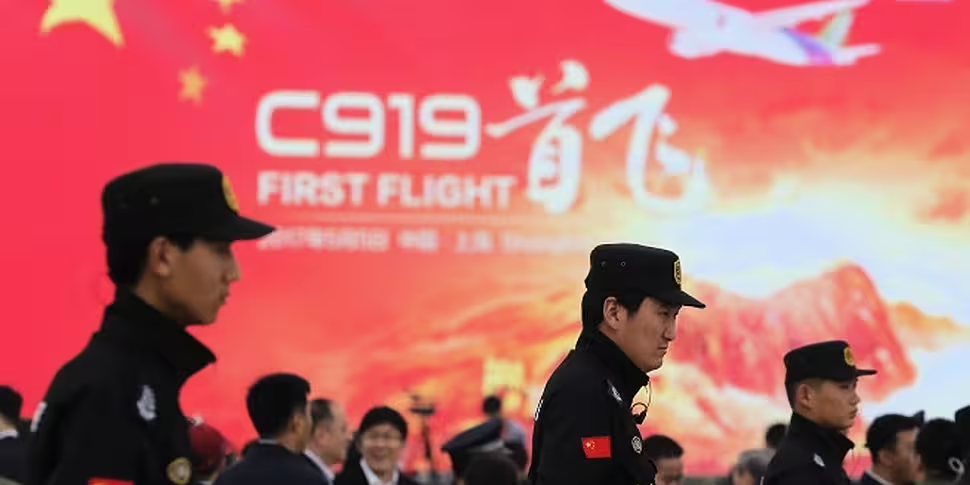After years of delays, China's ambitions to challenge the US and Europe when it comes to the commercial jet game is finally, quite literally, off the ground.
The C919's maiden passenger flight took place today in the skies over Shanghai. The twin-engine airliner's symbolic flight lasted just 80 minutes, with its take off from, and return to, Pudong International Airport being broadcast on China's state-controlled television.
Behind the landmark jet is state-owned aerospace manufacturer Comac, who are now hoping to rub shoulders with the likes of Boeing and Airbus after overcoming design setbacks and myriad problems since it was founded in 2008.
The country was attempting to launch a commercially viable passenger jet since as far back as the 1970s, when Chairman Mao failed to find success in the endeavour.

Picture by: Andy Wong/AP/Press Association Images
The C919 carries 170 passengers and has a range of more than 5,500 kilometers, meaning it will match up against the Boeing 737 and Airbus A20 in a fast-growing aviation market.
Newstalk business editor Vincent Wall noted this morning that Ryanair boss Michael O'Leary had said as far back as 2011 that he could buy 400 of the jets when they came on the market.
#C919 took off from Shanghai Pudong Int'l Airport at 1400LT. pic.twitter.com/aIHjHqj0fY
— ChinaAviationReview (@ChinaAvReview) May 5, 2017
Although he’s done further deals with Boeing since, Wall believes he will "almost certainly threaten the odd visit to Shanghai to keep Boeing honest".
Speaking to Bloomberg, one aviation analyst questions how authentic the "made-in-China" claims were, due to the fact that certain key components were imported – a German landing gear and Franco-American engines, for example.

Picture by: Aly Song/AP/Press Association Imag
However, China is running with the patriotic angle, with state broadcaster CGTN hailing the flight as "another fulfilment of a Chinese dream”.
Gu Bin, an aviation expert from China’s Aviation Industry Cooperation, told The Guardian that he predicted the C919 would "rip a hole" in the Airbus-Boeing duopoly.
He said:









